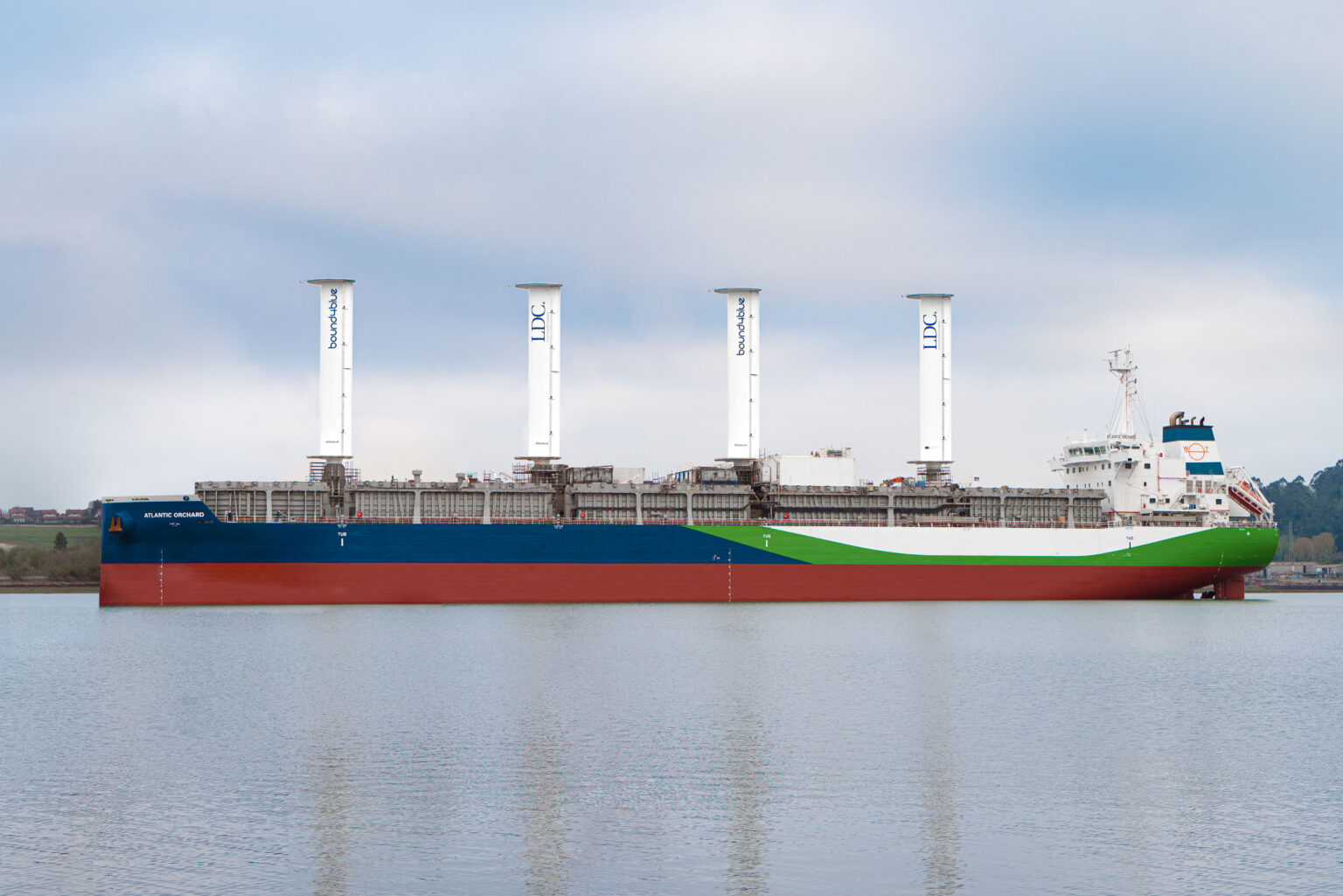Testing Wind Power
As more wind power systems are installed on ships, DNV issues guidelines on testing their performance

Norwegian classification society DNV has released a new Recommended Practice (RP) to assess the performance of Wind-Assisted Propulsion Systems (WAPS).
DNV notes that, with some 50 systems now in operation, WAPS have emerged as a promising solution for the maritime industry to realise fuel savings and emissions reductions. It says that as shipping’s transition to more sustainable but higher cost fuels accelerates, these efficiency gains can translate into significant cost savings.
“At DNV we have been working on WAPS installations for several years and were the first classification society to publish rules and standards to enable their deployment,” says Johanna Tranell, WAPS Performance Assessment Lead, at DNV Maritime. “But for energy efficiency technologies like WAPS to break through to wider deployment, we need the industry to be confident in their effectiveness. The new RP establishes a practical, reliable standard that helps us generate transparent, verifiable data, building trust in the potential of these systems.”
DNV’s Recommended Practice proposes an on/off methodology – engaging and disengaging the WAPS system under similar operational and environmental conditions – to measure performance. The classification society asserts: “This provides a robust framework that, combined with independent third-party verification, delivers actionable insights for shipowners and operators looking to install WAPS on their vessels.”
“Industry collaboration and consensus are vital as we work towards a greener future for shipping,” says Hans Anton Tvete, Business Development Manager at DNV Maritime. “And to build consensus we need a shared understanding – backed by standardised, verifiable data. By working together to shape this new RP, the maritime community can ensure that these solutions are truly making an effective contribution to our decarbonisation.”
Meanwhile WAPS manufacturer bound4blue has completed of the installation of the “world’s largest suction sails”, with four 26-metre high eSAILs fitted to the Atlantic Orchard. Chartered by Louis Dreyfus Company (LDC) and owned by Wisby Tankers AB, Sweden (Wisby Tankers), the specialised juice carrier had the sails fitted in a single stop already planned for the vessel’s 10-year survey at Astander Shipyard, Santander, Spain, ensuring optimal efficiency.
The four eSAILs were installed in under a day per unit, as planned. According to bound4blue, when sailing, the 2014-built vessel, which was originally a dry bulk vessel before undergoing a conversion in 2020, will now benefit from simplified FuelEU Maritime compliance, taking advantage of the Wind Reward Factor, with further CII, EU ETS, and additional regulatory benefits. It adds that, depending on trading routes, fuel consumption and emission savings are projected to reach around 10%
José Miguel Bermúdez, CEO and Co-founder, bound4blue says that “the project showcases the simplicity and versatility of adopting advanced Wind Propulsion Systems (WPS) for an industry in transition”.
Bound4blue says its eSAILs have a typical payback period of less than five years and are suitable for either newbuilds or retrofitting “across a diverse array of vessel segments”. Recent orders have been received from shipping companies including Maersk Tankers, Marflet Marine, Eastern Pacific Shipping and Klaveness Combination Carriers, amongst others.
In another development Japanese classification society ClassNK has issued an approval in principle (AiP) for a Rigid Windsail Type WAPS developed by OceanWings. The certification confirms its feasibility from regulatory and safety perspectives.
ClassNK notes: “The implementation of WAPS is advancing as a solution for responding to environmental regulations and reducing fuel expenses. When such systems are installed on ships, they are expected to be effective in reducing CO2 emissions through the use of wind power. However, depending on the scale and specifications, risks can arise for the ship’s structure, onboard crew, and the surrounding environment.”
The design concept of the system was reviewed based on ClassNK’s ‘Guidelines for Wind-Assisted Propulsion Systems for Ships (Edition 2.1)’ and the system’s conformity to prescribed requirements for structural design, driving and control systems.
get
in touch

Constructive Media
Constructive Media
Hornbeam Suite
Mamhilad House
Mamhilad Park Estate
Pontypool
NP4 0HZ
Tel: 01495 239 962
Email: ibia@constructivemedia.co.uk

On behalf of:
IBIA London Office
Suite Lu.231
The Light Bulb
1 Filament Walk, Wandsworth
London, SW18 4GQ
United Kingdom
Tel: +44 (0) 20 3397 3850
Fax: +44 (0) 20 3397 3865
Email: ibia@ibia.net
Website: www.ibia.net

Emails
Publisher & Designer: Constructive Media
ibia@constructivemedia.co.uk
Editor: David Hughes
anderimar.news@googlemail.com
Project Manager: Alex Corboude
alex@worldbunkering.net
